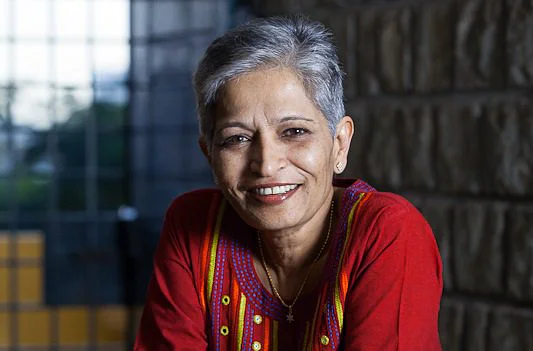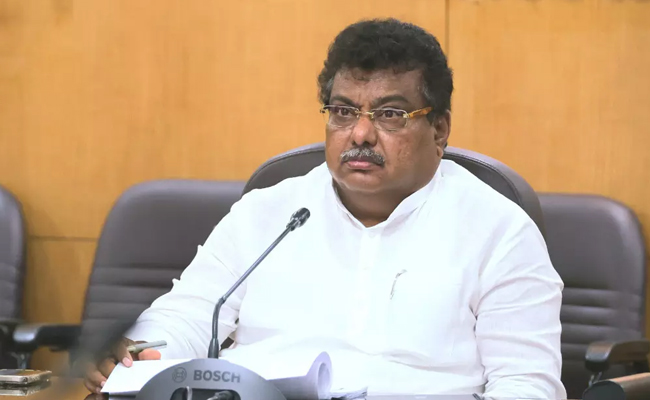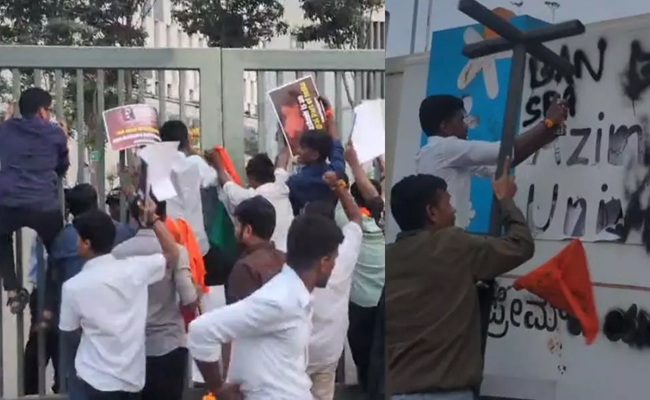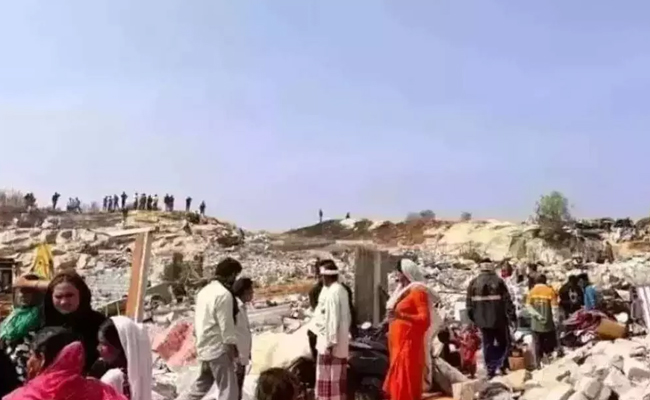Bengaluru (PTI) "Gauri," a documentary based on late journalist-activist Gauri Lankesh, directed by her sister and award-winning director Kavitha Lankesh, has won the 'Best Human Rights' film at the Toronto Women's Film Festival 2022.
The film has been selected also for the South Asian Film festival of Montreal and is in consideration at Doc New York, International Documentary Film Festival of Amsterdam, Sundance Film Festival, and other festivals across the world.
Kavitha Lankesh, in a statement, said the documentary exposes the physical and verbal threats journalists face every day in India.
There were over 200 reported attacks on journalists in India in the last five years, out of which over 30 of them were murder in the last decade, she said. The attacks range in severity but the intention behind them matter, she said.
India's number in the global press freedom index is 150 out of 180, she further said and added that attacks on dissenters and journalists are unfortunately not new nor limited to India, but it is the intensity in which the attacks have taken place in the last decade is something to be concerned about.
Gauri Lankesh was shot dead on the night of September 5, 2017, from close range near her house in Rajarajeshwari Nagar in Bengaluru.
According to the statement, the documentary film Gauri has been commissioned by Free Press Unlimited, Amsterdam.
Free Press Unlimited mission stems from Article 19 of the Universal Declaration of Human Rights that says everyone has the right to freedom of opinion and expression; this right includes freedom to hold opinions without interference and to seek, receive and impart information and ideas through any media and regardless of frontiers, it said.
Let the Truth be known. If you read VB and like VB, please be a VB Supporter and Help us deliver the Truth to one and all.
Bengaluru (PTI): Karnataka Minister M B Patil on Tuesday chaired meetings with industry representatives from the aerospace and defence, machine tools, auto/EV, and green energy sectors to discuss sector growth and government support measures.
The meetings were attended by leading industrialists and their representatives, with some participating virtually.
Speaking on the occasion, the minister for Large and Medium Industries said Karnataka is at the forefront of the country’s aerospace and defence sectors.
He noted that Suzuki and Toyota plan to launch aerial taxi services in Japan by 2028, with Bengaluru-based Sasmos supplying electrical equipment for the project.
Industrialists suggested introducing similar “fly-taxi” services in Karnataka through an appropriate policy, which Patil said would be examined seriously.
The minister highlighted the need to establish testing centres and Common Facility Centres for the aerospace and defence industries and assured that these facilities would be provided.
Suggestions were also made to prepare a comprehensive roadmap for sector growth.
Karnataka has urged the Central Government to approve Defence Corridor projects in the Bengaluru North–Kolar–Chikkaballapur and Dharawada–Vijayapura–Belagavi regions.
Industrialists also suggested a corridor between Bengaluru and Mysuru, Patil said.
He said Karnataka aims to become a hub for defence electronics manufacturing, with plans to establish a 200-acre Defence Electronics Park and a 100-acre Avionics and Sensor Park.
These projects will be implemented once the Special Investment Region is operational, and land availability will not be an issue.
On the machine tools sector, Patil said the industry has recorded an annual turnover of Rs 36,500 crore and is witnessing steady growth.
Large-scale exhibitions have increased demand, and the state must strengthen its capabilities to develop control systems for heavy machinery. One testing unit is already operational in Bengaluru, with another planned for Tumakuru. Expansion of vocational training institutes in industrial areas is also underway.
In the Auto and EV sector, Vision Group members highlighted the need for a network of dry ports and more EV charging stations across the state.
Patil noted that the Tata Group is manufacturing EV buses in Dharawada for nationwide supply. Plans for mini excavator production and export facilitation were also discussed, along with the establishment of a testing facility for two-wheeler EVs.
For the Green Energy sector, the group emphasised the need for a suitable policy on battery-based energy storage and the establishment of data centres.
Patil assured that the government will seriously consider all suggestions and respond positively.





_vb_21.jpeg)